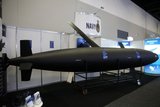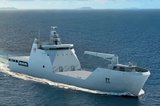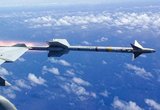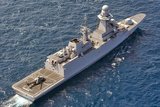What capabilities are being tested under AUKUS Pillar II?
Collaboration on AUKUS Pillar II extends beyond the core trilateral agreement, presenting global opportunities for companies with advanced technologies.
The view from the bridge in Kilo’s VR trainer. (Image: Kilo Solutions)
Kilo Solutions, a UK-based VR maritime training provider, has won a contract with the Royal Navy (RN) to supply 24 units of its “virtual advancement system for competent operations” (VASCO), to help RN officers with their bridge watchkeeping, mission rehearsal, and skill fade prevention.
The sale of “VASCO-in-a-box” (VIAB) units to the RN adds a commercial off-the-shelf VR into the make-up of ongoing training for the UK’s naval personnel. The set-up includes four Meta Quest headsets, a dedicated router delivering a secure, standalone LAN for the training, and a preconfigured laptop containing all the VASCO training scenarios.
Users will also, as with most virtual training devices, have the ability to define and run their own missions, to ensure they get the most practical use out of the VIAB.
Babcock to partner with companies to develop improved VR training system
Fincantieri company launches VR and AR simulator for ROVs
The sale to the RN is Kilo’s second major order in the world of naval defence.
The first saw it work with the US Navy (USN) to deliver an adaptation of VASCO into the navy’s VIBRaNT (Virtual Bridge and Navigational Trainer) VR training system.
Andy Parkin, managing director at Kilo Solutions, said the RN contract was significant not just for the company but for the role of VR naval training as a whole: “The ability to develop and apply knowledge within a fully immersive and interactive training environment is game-changing,” he explained.
“Mission rehearsal, competency evaluation, promotion assessment alongside skill development, are now just some of the use cases that are advancing operational capability by using VR training like VIAB. VR training lets command teams maintain bridge watchkeeping standards at individual and team level like never before,” Parkin added.
VR and AR operational training became more accepted in navies across the course of 2024, with big players, including Fincantieri and Babcock exploring the potential of VR technology in a training environment.

Collaboration on AUKUS Pillar II extends beyond the core trilateral agreement, presenting global opportunities for companies with advanced technologies.

The A$4 billion Landing Craft Heavy contract for Austal follows on from a A$1 billion deal in December for Landing Craft Medium ships, but the Australian government has made it clear that a contract for Mogami frigates is reliant on the success of these two contracts.

As part of the Runway Independent Maritime & Expeditionary Strike programme, the US Navy is pursuing drones capable of delivering palletised rounds or 1,000lb-class munitions.

Havelsan, VN Maritime and Piloda Defence will collaborate to develop and integrate a range of maritime solutions with a view to secure a first procurement contract in Italy in the first half of this year.

Export campaigns for Fincantieri’s submarines and frigates are central to the company’s ambitions as billions of dollars in unawarded contracts come into focus.

The USCG recently announced the award of a contract to Davie Defense for the supply of five ASCs, marking a major step in the acquisition programme as the US grows its presence in the Arctic.